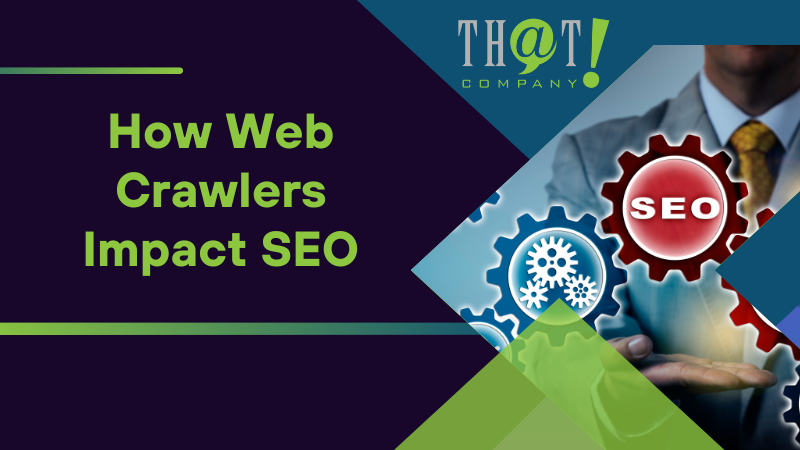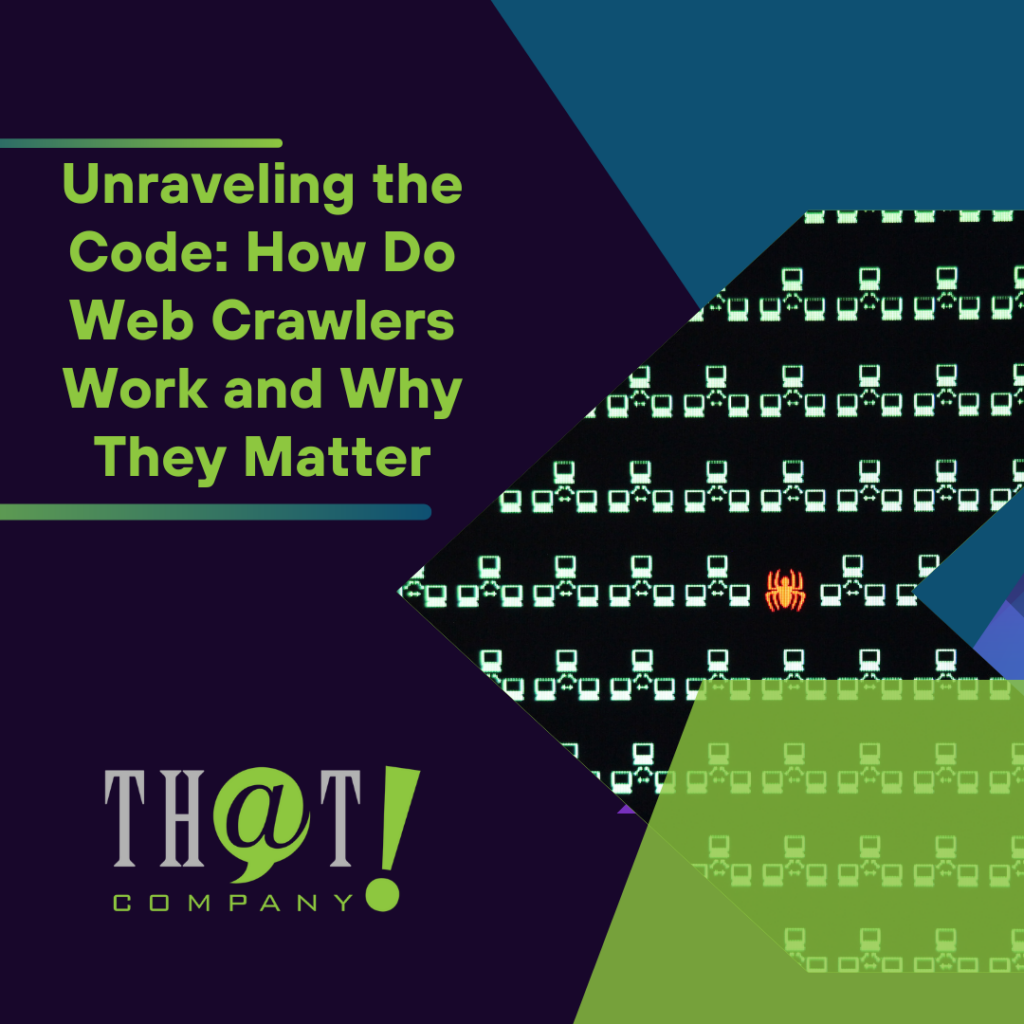
Looking to understand how do web crawlers work? These automated programs scour the web to index content for search engines, impacting how and why certain pages appear in your search results. Our guide will walk you through the essentials of their operation and their pivotal role in the realm of SEO.
Key Takeaways
- Web crawlers, critical to search engine functionality, systematically search, index, and rank web pages with various types including search engine, semantic, academic, and commercial crawlers.
- The web crawling process starts with a seed URL; crawlers fetch content, parse it for information, and identify new links, enabling search engines to deliver relevant results and maintain current indexes.
- Understanding and optimizing for web crawler functionality is essential for SEO success, as it dictates a website’s visibility in search results, influenced by factors like crawlability and the site’s structure.

The Intricacies of Web Crawlers
Often likened to librarians cataloging books, web crawlers systematically explore and index websites, serving as the backbone of search engine functionality. They are automated programs that systematically search and index websites, making sense of the vast and ever-growing World Wide Web.
Web crawler bots, like Googlebot for Google and Bingbot for Bing, tirelessly traverse the digital universe, collecting data, and cataloging web pages for retrieval. The role of these search engine web crawlers in search engine optimization (SEO) is indispensable as they determine how many pages are indexed and how they rank in search results. Utilizing tools like Google Search Console can help you monitor and optimize your website’s performance in search engines.
Types of Web Crawlers
Each type of web crawler has a unique role in the web crawling process. Major search engine bots like Googlebot and Bingbot are prime examples of search engine crawlers. They scour the web, indexing web pages to serve relevant search results to users.
Then we have semantic focused crawlers and academic focused crawlers. Semantic focused crawlers download pages that are semantically similar, catering to specific queries. Academic focused crawlers, on the other hand, focus on freely accessible academic documents, employing machine learning or regular expressions post-crawling to ensure relevance.
Commercial or outsourced web crawlers are pre-built solutions for organizations without in-house technical expertise. Thus, the vast digital universe is kept in order, thanks to these different types of web crawlers.
Web Crawler Terminology
Web crawlers are known by many different names. You may have heard them referred to as:
- ‘web spiders’
- ‘robots’
- ‘spiderbots’
- ‘crawling agents’
- ‘web scrapers’
- ‘ants’
- ‘automatic indexers’
- ‘Web scutters’
While the names may vary, the purpose remains the same: to explore, index, and update the web’s vast collection of web pages.

The Web Crawling Process
The fascinating journey of the web crawling process begins with a single URL, known as the seed URL. Web crawlers perform the following steps:
- Fetch the HTML content of the page corresponding to the seed URL via an HTTP request.
- Parse the content, extracting relevant information.
- Identify new hyperlinks that lead to other web pages.
This process allows focused web crawlers to explore and index the vast expanse of the internet.
These extracted URLs are placed in a queue known as the crawl frontier, which dictates the order in which the crawler will visit the pages. Through this systematic navigation and data extraction, web crawlers build an organized index. This enables search engines to deliver relevant search results to users, transforming the chaotic web into an accessible library of information.
Seed URLs and Discovery
The exciting journey of web crawling begins with seed URLs. Think of them as the starting point for a treasure hunt. The web crawler deploys from this point, exploring the vast digital landscape of a website.
Once the crawler visits a seed URL, it extracts data, identifies links to other pages, and systematically follows these links, much like a treasure hunter following clues. This process of discovery allows web crawlers to unearth new pages within the domain, expanding their knowledge and enriching the index they create.
Analyzing Content and Metadata
As web crawlers traverse web pages, they act as meticulous data gatherers, collecting information from each web page through web scraping, such as:
- page titles
- images
- keywords
- links
When users make an HTTP request to a web server, they identify themselves using the User-agent field, which allows them to access the required data.
However, challenges arise when web crawlers encounter duplicate content, making it difficult to determine which version of the content to index and rank. To combat this, web crawlers employ URL normalization, a process used to standardize a URL to ensure consistency when accessing and cataloging web pages.
For capturing network logs crucial for web crawlers, implementations may utilize ChromeDriver performance logs or integrate Browsermob-Proxy with Selenium.
Following Links and Updating Indexes
Beyond discovering and indexing web pages, web crawlers also have the crucial job of:
- keeping the index up-to-date
- following links extracted from web pages
- repeating the data collection process
- updating their indexes accordingly.
When web crawlers discover hyperlinks in retrieved pages, they add them to the list of URLs to be visited, known as the crawl frontier. Crawler policies define the selectivity in links chosen for crawling, the order in which pages are crawled, and the frequency at which they are revisited for updates.
This constant updating ensures that users always have access to the latest information, keeping the Internet a dynamic and ever-evolving space.

How Web Crawlers Impact SEO
Playing a pivotal role in the world of SEO, web crawlers sift through billions of web pages to index websites. This is a prerequisite for web pages to appear in search results. Effective use of SEO practices can lead to better indexing by web crawlers, thereby making websites more visible and accessible to users via search engines.
The indexing and resulting search placement of web pages are influenced by the web crawling process, especially when pages have high-quality backlinks. SEO, the process of optimizing web pages to rank higher in search engine results, depends heavily on the functionality of web crawlers. Thus, understanding how web crawlers work is key to mastering SEO. To help you, a reputable white label SEO service provider can be availed.
Factors Affecting Crawlability
Crawlability is defined by a web crawler’s ability to navigate and index a website’s content. Several factors affect a website’s crawlability. Clear sitemaps and link structures facilitate better understanding and indexing by web crawlers.
Another key factor is the use of a robots.txt file, which allows site owners to communicate with web crawlers about which pages should or should not be accessed. Duplicate content can be managed through canonical tags, which help crawlers understand which versions of content are preferred for indexing.
Web crawlers also determine the page’s importance based on factors such as external links, page views, and perceived authority, affecting how they crawl and index the site.
Optimizing for Web Crawlers
A crucial part of SEO is optimizing for web crawlers. Having a structured sitemap is essential for web crawlers to navigate and index a website efficiently. SEO experts play a crucial role in optimizing websites to improve their crawlability, which directly influences how effectively web crawlers can index the site’s content.
Regularly updating website content ensures that web crawlers find new and modified content, keeping the site current and improving its relevance in search results. You can check with white label website design services. By optimizing your website for web crawlers, you ensure that your website is easily navigable and understandable, leading to better indexing and higher visibility in search results.

Challenges and Limitations of Web Crawlers
Web crawlers face significant challenges, despite their impressive capabilities. One of the major hurdles is dealing with dynamic content such as AJAX-based pages and content that changes frequently. Estimates show that only a portion (40-70%) of the Internet is successfully indexed by search engine bots.
Another challenge is the strain on server resources. In the process of indexing, web crawlers consume server resources which can lead to higher bandwidth costs and server strain. Thus, while web crawlers play a significant role in making the web accessible, they must carefully navigate these challenges to fulfill their role effectively.
Handling Dynamic Content
Dynamic content on web pages poses challenges for web crawlers due to frequent and sometimes automatic changes. Web crawlers need to revisit dynamic pages regularly to ensure the content they index remains up-to-date, which increases the workload and complexity of the crawling process.
Dynamic content such as calendars or algorithmically generated text can result in the creation of an unlimited number of documents for crawlers to process. Effectively handling dynamic content is crucial for web crawlers in order to maintain accurate and current indexes of the web.
Crawler Traps and Politeness
Websites employ crawler traps as techniques to prevent web crawlers from accessing certain pages. This could potentially cause the crawler to enter an infinite loop and consume excessive resources. Detecting spider traps poses a challenge, as there’s no universal method for all traps and new types can emerge quickly.
Politeness in web crawling involves staggering requests to various hosts and avoiding overloading a single server which also reduces the risk of falling into spider traps. One example of a politeness policy is the MercatorWeb crawler’s method of waiting a duration determined by multiplying the download time of a document by 10 before fetching the next page.
Websites can use a robots.txt file to indicate which areas of the site should not be crawled, effectively controlling the access granted to web crawlers.

The Role of Web Crawlers in White Label SEO Services
Firstly, in today’s digital landscape, the importance of white label SEO services, like those offered by That! Company, cannot be underestimated. These services involve SEO work performed by one entity and then rebranded and sold by other businesses under their own brands. Secondly, web crawlers play a crucial role in these services, performing the necessary SEO tasks that contribute directly to improving search rankings and online visibility for clients.
That! Company, established in 2007, has been serving over 500 agencies with white label SEO solutions including:
- National and Local SEO
- PPC
- Social Media
- Website Development
They cater to a diverse clientele, including website owners, making sure their websites are optimized for web crawlers and uphold the highest standards of brand representation.
That! Company’s White Label SEO Services
That! Company, the best white label digital marketing agency is specialized in offering comprehensive white label SEO services for agencies. Additionally, this includes strategy development, it also implements effective SEO techniques, and tracking progress and reporting. Their clients include SEO firms, traditional marketing firms, radio stations, newspapers, and other businesses looking to extend digital marketing services to their clients.
Their white label SEO solutions cover the following services:
- National and Local SEO
- PPC
- Social Media
- Website Development
By partnering with That! Company, businesses can confidently offer SEO services under their own brand.
Benefits of Partnering with a White Label SEO Agency
A partnership with a white label SEO agency like That! Company enables businesses to:
- Broaden their service offerings
- Cater to client needs without having to redirect them to competitors
- Provide comprehensive SEO solutions
- Enhance client satisfaction
- Create upsell opportunities with existing clients
Agencies and individuals benefit from white label SEO services by:
- Offering high-quality SEO without the need for substantial investment in expertise, infrastructure, and personnel
- Leveraging the expertise of That! Company
- Allowing businesses to focus on their core competencies, leaving the complex task of SEO to the experts.

Summary
Web crawlers are the unsung heroes of the digital world, tirelessly indexing the vast expanse of the Internet to make it searchable. Moreover, they play a crucial role in SEO, affecting a website’s visibility in search engine results. Understanding how web crawlers operate, the types of web crawlers, and the challenges they face is key to effective SEO.
Partnering with a white label SEO services provider like That! Company allows businesses to expand their service offerings and provide comprehensive solutions to clients. With a clear understanding of the role and intricacies of web crawlers, businesses can optimize their websites to ensure better indexing and higher visibility in search results. In the ever-evolving landscape of the Internet, web crawlers remain an integral component in making the web accessible and relevant.

Frequently Asked Questions
What are web crawlers?
Web crawlers, also known as search engine bots or spiders, automates programs that systematically search and index websites, making the vast World Wide Web accessible and searchable for users.
What is the role of web crawlers in SEO?
Web crawlers are essential for SEO as they index web pages, allowing them to appear in search results. This is a pivotal part of optimizing a website for search engines.
What is white label SEO?
White label SEO allows agencies to offer SEO services to clients under their own brand name. Furthermore, this creates a seamless and professional client experience.
Who uses That! Company’s services?
Numerous organizations including SEO firms, traditional marketing firms, radio stations, newspapers, and other businesses utilize That! Company’s white label SEO services.
What are the benefits to partner with a white label SEO agency like That! Company?
Partnering with a white label SEO agency like That! Company can help businesses expand their service offerings, increase client satisfaction, and create upsell opportunities with existing clients. It allows businesses to cater to client needs without the need to direct them to competitors.






























